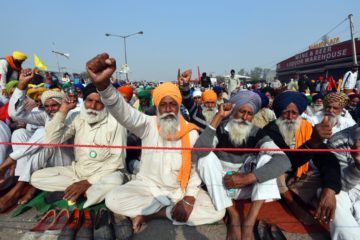
Achin Vanaik in Jacobin:
The ongoing struggle of farmers in India is the most significant mass mobilization in decades and represents the biggest challenge to the government of Narendra Modi since it first came to power in 2014.
The three agricultural reform laws forced through Parliament during the pandemic lockdown provoked this wave of protest. Modi’s Bharatiya Janata Party (BJP) insists that those laws are necessary to modernize an archaic and outdated system of farm production. Farmers, however, rightly see the dismantling of regulations, price controls, and public procurement commitments as a threat to their livelihoods.
They fear that opening up the sector to corporate agribusinesses and financial interests will lead to greater polarization of landholdings. This in turn will cause a large-scale displacement of farmers and laborers into an informal sector that already accounts for more than 90 percent of the total workforce and is incapable of providing enough employment or renumeration.
A Second Wind
Since late November 2020, hundreds of thousands of farmers, mainly from Punjab, Haryana, and western Uttar Pradesh, have camped on the outskirts of Delhi, disrupting the main roads into the capital. Rejecting the government’s offers to temporarily suspend the new laws, they have remained steadfast in demanding their repeal.
More here.
